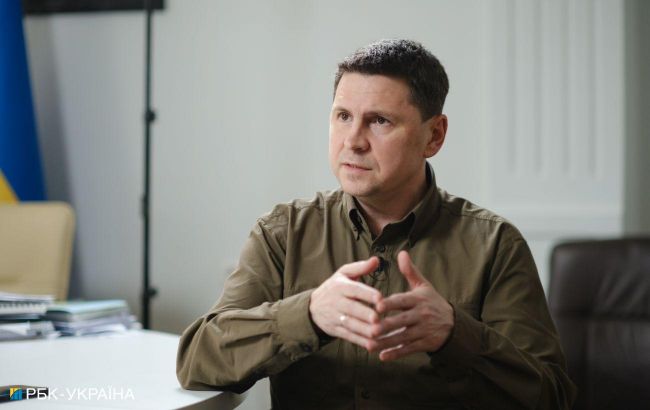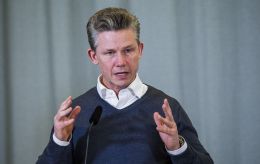Coercion is key: Zelenskyy's Office on preventing Russian attacks against Ukraine's nuclear plants
 Advisor to the Head of the Office of the President of Ukraine Mykhailo Podolyak (Vitalii Nosach, RBC-Ukraine)
Advisor to the Head of the Office of the President of Ukraine Mykhailo Podolyak (Vitalii Nosach, RBC-Ukraine)
To prevent Russia's shelling of Ukrainian nuclear power plants, one needs several components, such as strengthening air defense, pressure through the IAEA, etc. However, the most prioritized option remains coercion, says advisor to the head of the Presidential Office, Mykhailo Podolyak, in a comment to the YouTube channel RBC-Ukraine.
According to Podolyak, Russia understands that the only type of warfare against the civilian population is the total destruction of energy infrastructure. To achieve this, it's not necessary to destroy the plant itself, but its ability to transmit electricity to the general grid, i.e. substations located nearby.
"Undoubtedly, Russia is developing such plans. It is obvious, as we see that they are constantly searching for additional genocidal tools. I emphasize genocidal because this is a deliberate action aimed at depriving people of the ability to use electricity, heating, and so on," Podolyak added.
How to prevent
The advisor to the head of the Presidential Office explained that prevention consists of several components, including:
- Publicity. It is important to publicly speak about Russian terror and legally record the crimes that Russia plans to commit.
- Strengthening air defense. It is crucial to insist on the significant supply of air defense systems and missiles to them.
- Pressure through the IAEA and other organizations that influence the nuclear technology market. This includes countries like India and China.
"But let's be honest. Russia will only stop through coercion. Meaning, force - once again, a substantial increase in the amount of damage that Ukraine can inflict on the territory of Russia. Meaning, a significant escalation of the war on Russian territory. New appropriate tools are needed for this, and you know this well," Podolyak emphasized.
Russian massive shelling
Since the beginning of the full-scale invasion, Russia has regularly carried out massive strikes on Ukrainian territory. Since the start of this year alone, it has launched nine large-scale attacks on Ukraine's energy sector.
Almost every night, Russians launch Shahed-type unmanned aerial vehicles (UAVs).On the night of September 25, they attacked Ukraine with an S-300 guided missile, three unidentified missiles, four Kh-59/69 guided air missiles, and 32 strike drones. Air defense managed to destroy 28 UAVs.

